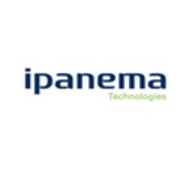

Ipanema IpIengine and Cato SASE Cloud Platform compete in the network management space. Cato SASE Cloud Platform appears to have the upper hand due to its superior integration and security capabilities.
Features: Users find Ipanema IpIengine valuable for its advanced traffic shaping, extensive application visibility, and high customization. Cato SASE Cloud Platform is recognized for comprehensive security features, seamless integration with existing infrastructure, and effective threat detection.
Room for Improvement: Ipanema IpIengine needs to address its steep learning curve, limited support for newer protocols, and complicated configuration processes. Cato SASE Cloud Platform requires more intuitive configuration options, improved reporting tools, and better user interface updates.
Ease of Deployment and Customer Service: Ipanema IpIengine has a complex deployment process requiring specialized knowledge but provides responsive customer service. Cato SASE Cloud Platform offers straightforward deployment and comprehensive support, though some users report delays.
Pricing and ROI: Ipanema IpIengine has a higher setup cost but yields substantial ROI due to its robust feature set. Cato SASE Cloud Platform users find the pricing reasonable, considering its extensive security benefits and cost-effectiveness.
| Product | Market Share (%) |
|---|---|
| Cato SASE Cloud Platform | 20.1% |
| Ipanema IpIengine | 3.1% |
| Other | 76.8% |
| Company Size | Count |
|---|---|
| Small Business | 14 |
| Midsize Enterprise | 7 |
| Large Enterprise | 10 |
Cato Networks is a leading SASE (Secure Access Service Edge) platform, combining SD-WAN and network security to obtain a cloud-native service. Cato Networks optimizes and secures application access for users and identities. The platform delivers a next-generation secure networking architecture that minimizes legacy IT infrastructures’ complexity, costs, and risks. The goal of Cato Suite is to connect any user to any application securely and optimally.
Cato Suite runs on a private global network of more than 65 PoPs (points of presence) connected via SLA-backed network providers. The service can connect branches, data centers, users, and clouds. Cato can be deployed in stages to augment legacy network services.
Cato Suite delivers end-to-end route optimization for WAN and cloud traffic. The architecture is self-healing, enabling a high service uptime.
Cato Features
Cato Cloud has a global backbone to deliver a reliable, global network. Here are some key SD-WAN features of Cato Cloud.
What challenges does Cato Network solve?
MPLS (multi-protocol label switching) networks are usually expensive and limited in their capacity. Cato simplifies migrating to a faster, higher-capacity internet and SASE cloud. Cato SD-WAN appliances enable customers to improve usable capacity and resiliency.
Customers who suffer from the challenge of high latency and network inconsistency can use Cato to deliver a consistent connection and user experience to access on-premises and cloud applications.
Cato’s complete network security stack connects all branch locations to the Cato cloud, therefore protecting all traffic, both internet-bound and WAN, with enterprise-grade, cloud-based security services. This capability avoids having to backhaul internet traffic to a data center or hub or having to implement stand-alone cloud security solutions.
Organizations using Cato notice an acceleration of cloud traffic. Cato achieves this by routing all traffic from the edges to the PoP closest to the data center. Because of the close distance between the two, the latency is near zero.
Reviews from Real Users
An IT manager/project coordinator at a healthcare company says that “[Cato is] a cloud-based solution that integrates well with everything. They are the classic SaaS solution.”
Yeong-Gi L., a network engineer at Snetsystems, notes that “The solution is very stable. The scalability is quite good. Technical support was always helpful and responsive. The integration capabilities are not a problem at all.”
"The most valuable feature is that it also works as a next-gen firewall because it has security features," says Lorenzo S., senior solutions consultant Lead at MDI.
The Ipanema Autonomic Networking System (ANS) uses both software and hardware components. The fully featured hardware components are called ip|engines. These devices are installed within the customer VPN at edge locations, typically between a CPE router and the LAN. Requiring no specific local configuration except an IP address, an ip|engine is a self-managed and cooperative device that operates under the control of the ANS central management software, called SALSA. Each ip|engine acts as a local point of control within ANS. ip|engines work collectively in real-time to discover the applications and measure the network's performance and usage ip|engine. As part of ANS, the ip|engines cooperate and tune themselves automatically to the dynamic nature of the application traffic, globally enforcing the Application SLAs. They take into account meshed flows, different types of congestion, application competition for resources and so on. The ip|engines adapt to longer term changes within the business, such as a change in the distribution of users across sites, a newly deployed application or a new site, as well as the evolution of infrastructure and services into the cloud.
We monitor all WAN Optimization reviews to prevent fraudulent reviews and keep review quality high. We do not post reviews by company employees or direct competitors. We validate each review for authenticity via cross-reference with LinkedIn, and personal follow-up with the reviewer when necessary.